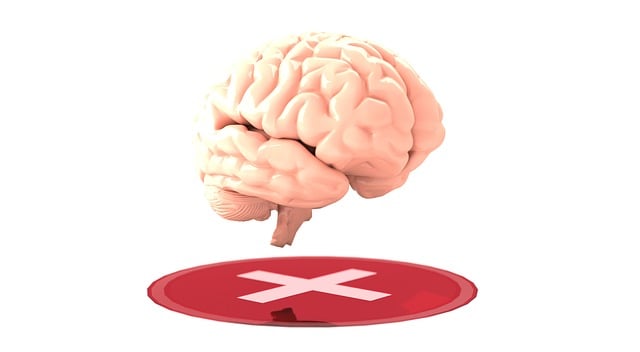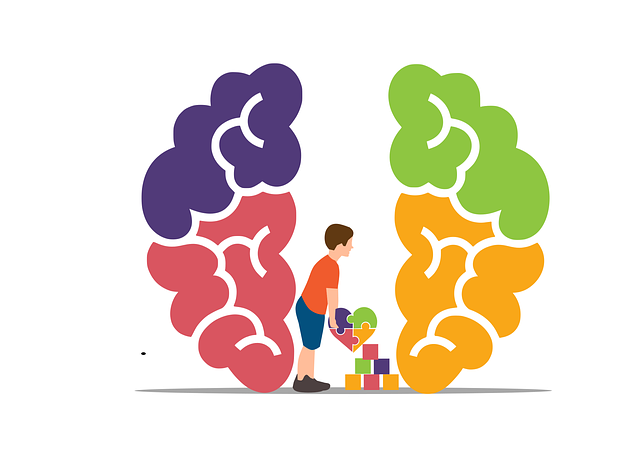Oppositional Defiance Disorder (ODD) is a common childhood behavioral issue treated through behavior modification, stress reduction, and emotional regulation techniques. Resilience, Flexibility, and Mastery (RFM) therapy focuses on building mental wellness in children with ODD by teaching self-care practices, emotion recognition, and adaptive coping strategies. Effective resilience exercises for ODD should be age-appropriate, tailored to individual needs, and integrated into safe, supportive environments like role-playing scenarios. RFM strategies, when incorporated into therapy, reduce ODD symptoms, prevent comorbidities, and contribute to mental health stigma reduction while aligning with burnout prevention efforts.
Oppositional Defiance Disorder (ODD) is a common challenge faced by many parents and caregivers, characterized by persistent arguing, defiance, and anger. This article explores how RFM (Reflection, Feeling, and Meaning) exercises can be a game-changer in therapy for children with ODD. We’ll guide you through understanding ODD, introducing the RFM tool, designing effective resilience activities, and practical strategies to integrate RFM into therapeutic sessions, fostering resilience and positive behavior changes.
- Understanding Oppositional Defiance Disorder (ODD) in Children
- Introducing RFM: A Powerful Tool for Resilience Building
- Designing Effective Resilience Exercises for Kids
- Practical Strategies to Integrate RFM into Therapy Sessions
Understanding Oppositional Defiance Disorder (ODD) in Children

Oppositional Defiance Disorder (ODD) is a common behavioral problem that can significantly impact a child’s daily life and relationships. Typically diagnosed in childhood, ODD is characterized by frequent and consistent arguments with authority figures, such as parents or teachers. Children with ODD often display defiance, irritability, and anger, which can make it challenging for them to follow rules or get along with peers. This disorder isn’t merely a phase; it’s a complex condition that may stem from various factors like genetic predisposition, environmental influences, or underlying mental health issues.
Understanding ODD involves recognizing its symptoms and the impact they have on a child’s functioning. Therapy for Children Oppositional Defiance Disorder often focuses on behavior modification techniques, such as positive reinforcement and structured parenting approaches. Stress reduction methods, conflict resolution techniques, and learning effective communication strategies are also integral parts of treatment. By teaching children coping mechanisms and improving their problem-solving skills, professionals aim to enhance their ability to manage emotions, resolve conflicts, and build resilience.
Introducing RFM: A Powerful Tool for Resilience Building

Resilience is a vital component of mental wellness, enabling individuals to navigate life’s challenges and adversity with strength and adaptability. One effective tool that has gained prominence in fostering resilience, especially among children, is the RFM (Resilience, Flexibility, and Mastery) model. This approach offers a structured framework to enhance coping strategies and build inner fortitude. By focusing on these three key pillars, RFM provides a powerful therapy for children with Oppositional Defiant Disorder (ODD), helping them develop essential skills for managing emotions and improving relationships.
The RFM methodology encourages self-care practices that promote mental wellness coaching programs development. It teaches children to recognize and accept their feelings, fostering positive thinking and emotional intelligence. Through various exercises designed to enhance flexibility in thinking and behavior, kids learn to adapt to different situations, ensuring they can confidently navigate life’s twists and turns. This early intervention can significantly impact a child’s overall well-being, providing them with lifelong tools to build resilience and thrive despite challenges.
Designing Effective Resilience Exercises for Kids

Designing effective resilience exercises for children goes beyond merely engaging activities. It requires a deep understanding of their developmental stage and individual needs, especially when addressing issues like Oppositional Defiance Disorder (ODD). Therapists and caregivers should aim to create a safe and supportive environment where kids can explore emotions, learn coping strategies, and build problem-solving skills. Incorporate interactive elements that encourage active participation, such as role-playing scenarios or board games with emotional themes. These exercises should be age-appropriate and tailored to foster resilience, which is the ability to adapt and bounce back from challenges.
Crisis intervention guidance can be seamlessly integrated into these activities to help children manage intense emotions and stressful situations. By combining mental wellness coaching programs development with engaging exercises, professionals can contribute to mental illness stigma reduction efforts while promoting emotional well-being in young minds. The key is to make learning about resilience fun and accessible, allowing kids to develop the tools they need to navigate life’s challenges head-on.
Practical Strategies to Integrate RFM into Therapy Sessions

Integrating RFM (Resilience, Flexibility, and Mastery) strategies into therapy sessions offers a powerful approach to enhancing resilience in children presenting with Oppositional Defiance Disorder (ODD). Therapists can incorporate these techniques to empower young clients, teaching them effective coping mechanisms and building emotional strength. For instance, encouraging children to identify their triggers and develop adaptive responses is an essential step. This process involves helping them recognize specific situations or interactions that elicit oppositional behaviors and then guiding them in replacing those with more positive alternatives.
By fostering a sense of mastery, therapists can reduce symptoms associated with ODD and even prevent the onset of depression or burnout, which are common comorbidities. Strategies such as problem-solving training, mindfulness exercises, and gradual exposure to feared situations can be tailored to individual needs. These interventions not only support children in managing their emotions but also contribute to Mental Illness Stigma Reduction Efforts by promoting self-efficacy and a positive self-image. Additionally, incorporating RFM into therapy aligns with Burnout Prevention Strategies for Healthcare Providers, ensuring therapists are equipped to offer effective long-term support.
Resilience is a vital component in supporting children with Oppositional Defiance Disorder (ODD). By utilizing RFM (a robust and flexible tool), therapists can design effective exercises tailored to each child’s unique needs. Integrating these strategies into therapy sessions offers a promising approach to enhancing coping mechanisms, fostering adaptability, and ultimately improving the quality of life for kids facing ODD challenges. This comprehensive guide provides professionals with practical tools to navigate this journey towards building resilience in young individuals, offering hope and effective therapy for children with ODD.








